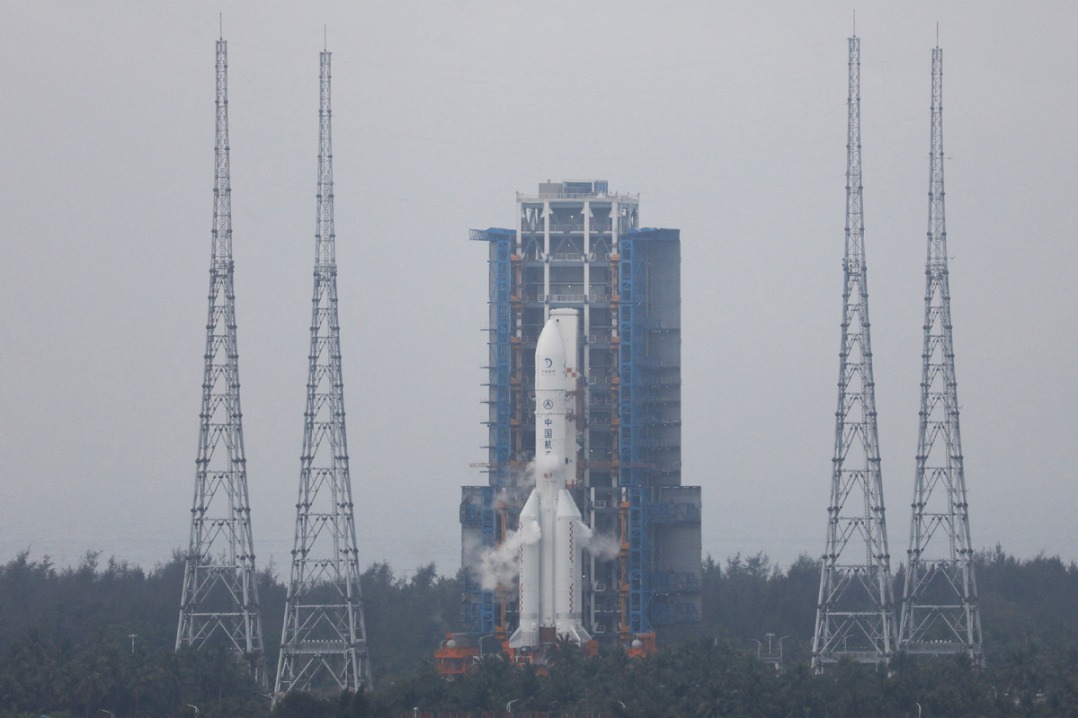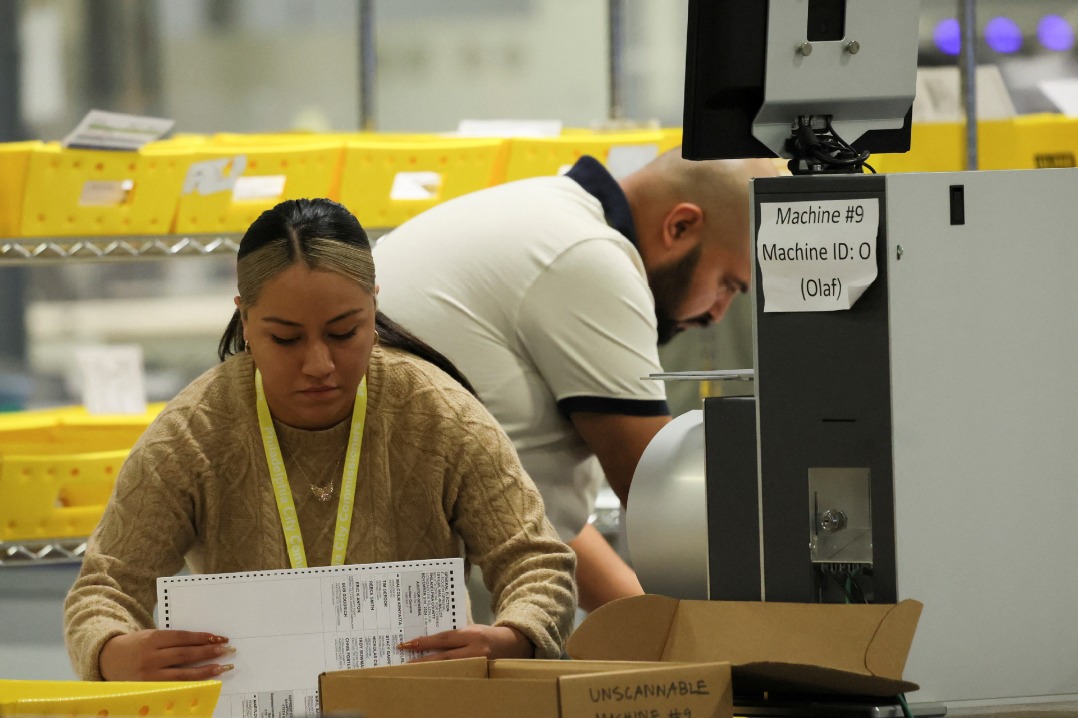Italian president's visit set to bolster ties, enhance pragmatic cooperation

Intensive, high-level interactions between China and Italy in recent months have underlined the robust growth of bilateral ties, as well as the two nations' efforts to enhance pragmatic cooperation amid trade friction between China and the European Union, observers said as Italian President Sergio Mattarella was set to begin a state visit to China on Thursday.
The six-day visit, which will take Mattarella to Beijing, Hangzhou in Zhejiang province, and Guangzhou in Guangdong province, comes less than four months after Italian Prime Minister Giorgia Meloni's trip to China.
Noting that both China and Italy are ancient civilizations and important economies in the world, Foreign Ministry spokeswoman Mao Ning said at a regular media briefing on Tuesday that the friendly cooperation between the two countries enjoys profound public support, serves the common interests of both sides, and is conducive to promoting the sound growth of relations between China and the EU and the stability and prosperity of the world.
In October, the European Commission, the EU's executive body, announced its decision to impose additional tariffs on electric vehicles made in China, and Italy voted in favor of the decision.
Liu Kan, the Chinese consul general in Milan, noted in a recent article that the unfair, noncompliant and unreasonable protectionist measure is not only unjust to Chinese enterprises, but also unfair to European consumers, including those in Italy.
Chinese EV brands such as BYD, Chery and Dongfeng are still popular among Italian consumers, and Chinese automakers remain confident in continuing cooperation with Italy, he wrote.
Many Italian automotive industry associations had voiced opposition to the EU's decision, he added.
Sun Yanhong, a senior research fellow at the Chinese Academy of Social Sciences' Institute of European Studies, said that Italy relies heavily on exports, so it values the Chinese market. On the other hand, it also wants to protect its domestic automotive industry, she said.
This contradictory mindset could have a negative impact on the two countries' practical cooperation, Sun said.
"However, if we look beyond the EV sector, Italy remains highly committed to cooperation with China in many other areas, and it holds a positive attitude in general toward developing bilateral relations," she added.
Crucial role
Italy also plays a crucial role in maintaining the overall China-Europe economic relationship, she said.
Jian Junbo, deputy director of the Center for China-Europe Relations at Fudan University's Institute of International Studies, said that given the relatively reduced influence of Germany and France within the EU, Italy still has a significant role to play in shaping the grouping's policies toward China.
Italy also attaches importance to its trade links with China, he added.
Over the past 20 years, China-Italy trade has grown from $10 billion to over $70 billion, and China has become Italy's largest trading partner in Asia.
According to Chinese Customs data, in the first half of this year, the value of China's imports from Italy was $15.475 billion, up 14 percent year-on-year, while exports to Italy reached $26.994 billion, up 17.4 percent year-on-year.
Cultural exchanges
This year is significant in the development of China-Italy relations, as it marks the 20th anniversary of the establishment of their comprehensive strategic partnership. It is also the 700th anniversary of the death of Marco Polo, the legendary Italian explorer who is viewed as a symbol of the historical ties between the two nations.
Cultural and people-to-people exchanges have always been an important part of bilateral cooperation, which has greatly facilitated mutual understanding as well as practical cooperation in other fields, said Sun, the CASS expert.
Marco Polo represents the spirit of openness and inclusiveness, Sun said.
"As we mark this anniversary, it serves as a reminder and inspiration for the peoples of both countries to continue promoting the spirit of the Silk Road, advancing people-to-people exchanges and economic cooperation, and contributing to mutual benefits as well as global peace and development," she said.
Statistics showed that the number of flights between the two countries has increased to more than 70 per week. China announced its 15-day visa-free policy for Italy in November last year.
zhoujin@chinadaily.com.cn

































